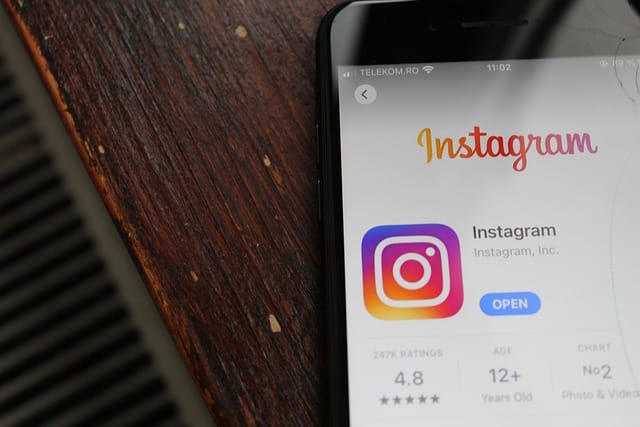
Instagram is one of the most popular Micro-blogging platforms with a whopping 500 million daily users worldwide. Imagine creating a community of even 1% of that number and converting your followers into customers.
To get a large following on Instagram requires a dedicated strategy and consistency to ace the game. In this article, we’re going to take you through an 8-step guide that will direct you on how to start an Instagram blog from scratch. Let’s jump in!
Plan of action
- Create an Instagram Creator profile
- Choose your niche wisely
- Work on the structure of your profile
- Create an editorial calendar for your blog
- Draft an effective hashtag strategy
- Start creating your blog posts with quality content
- Set an analytics system in place
- Explore ways to monetize your blog further
A step-by-step guide to start a profitable Instagram blog
If you had talked about earning money by creating content online ten years back, there would be many contemplations. But today, there are ’n’ number of ways you can earn money through blogging.
Let’s see how you can create an Instagram blog from scratch to start earning money from the first month itself.
- Create an Instagram Creator profile
You can create a profile on Instagram for free. However, there are three types of accounts that Instagram offers currently:
Personal profiles:
These are suitable for people who want to keep their accounts private and allow only a few people to stay connected with them.

Business profiles
These are suitable for businesses who want to create a page for their brand.
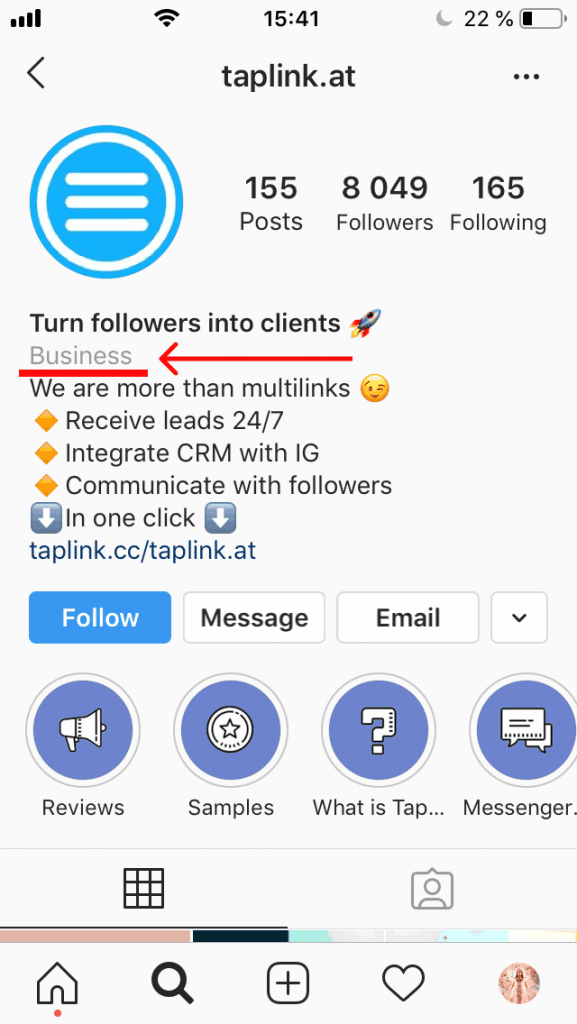
Creator profiles
Instagram created these profiles primarily for influencers, bloggers, and content creators because of the added benefits it offers.

Benefits of a creator profile

As a blogger, having a creator profile would be beneficial for these reasons:
Detailed growth data
The creator profile has detailed analytics to check audience demographics, best posting time, follower count, engagement rate, etc.
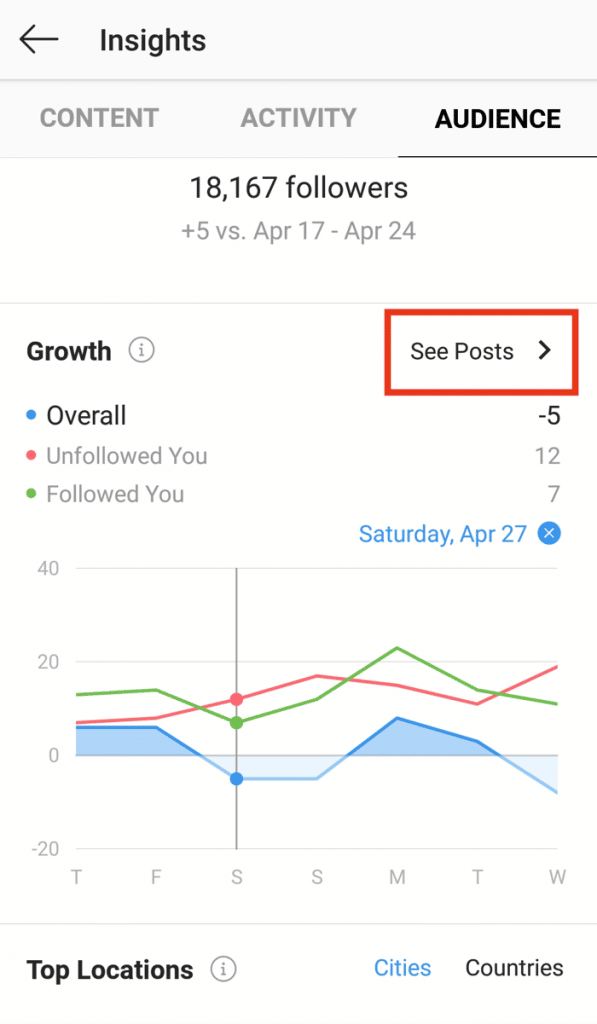
Sponsored posts
You can boost your posts through ads just like Facebook and reach a wider audience. This is especially when you sign a deal for Influencer marketing.

Off-platform links
Direct your audience to an off-Instagram link in the stories (available to profiles with over 10,000 followers) or a link in bio. This helps capture potential leads and convert your followers.

Streamlined messaging
Filter your direct message box into general, primary, and requests to reply to your audience accordingly.

Flexibility
With the creator profile, you have exclusive access to Instagram Creator Studio. You can access this on your desktop to check analytics and schedule your posts in advance.
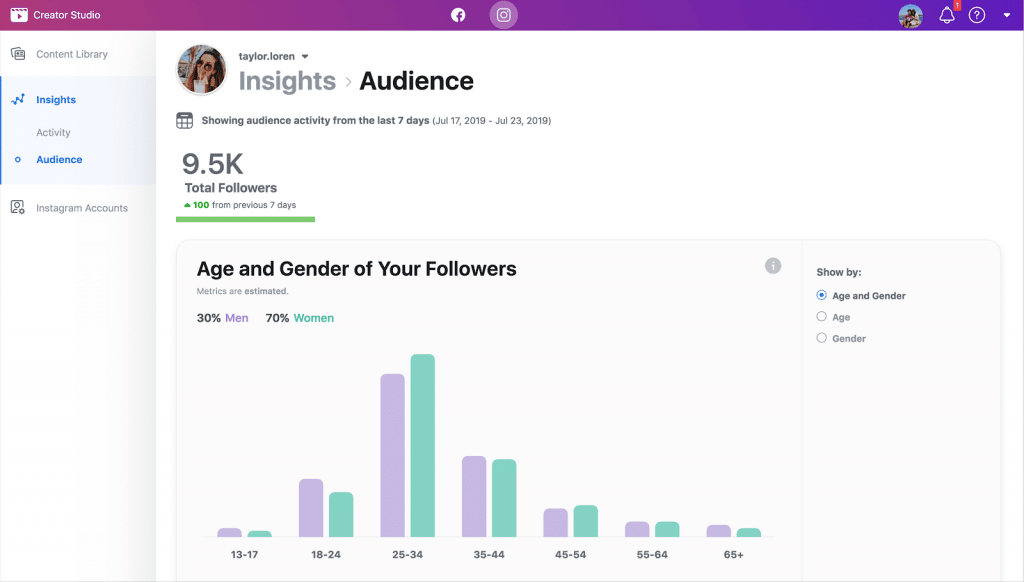
How to set up a creator account?
If you already have a personal or business account, it’s easy to shift to a creator account with a few simple steps:
- Open your Instagram account and click on the three lines on the top right corner.
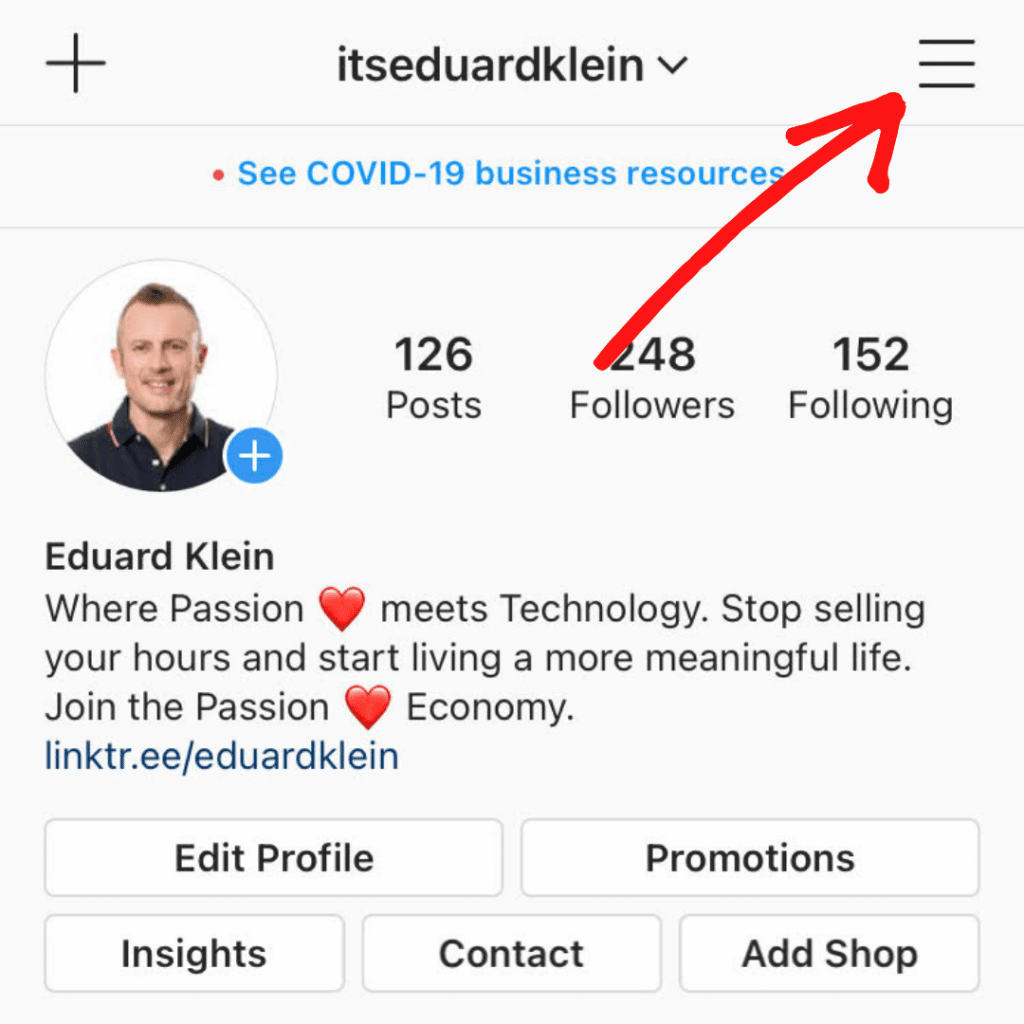
- Click on ‘Settings’ and then on ‘Account’ in the menu.
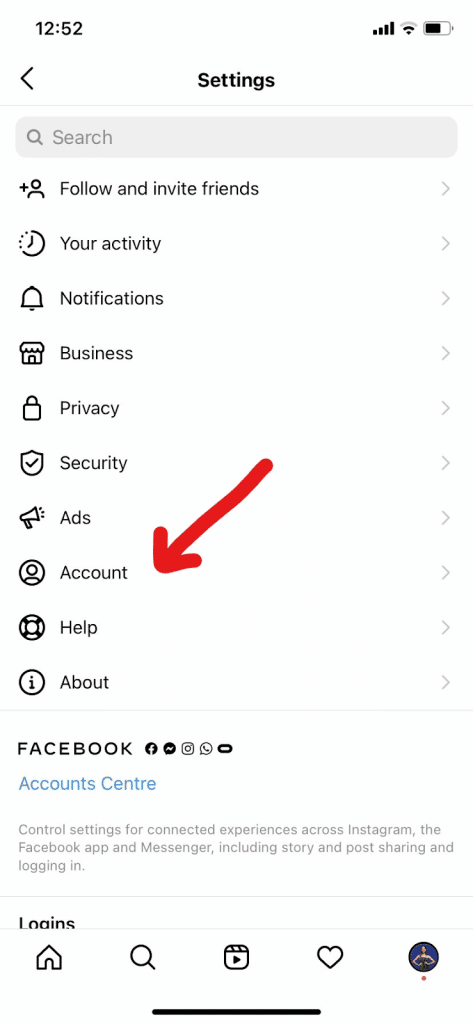
- On the bottom, click on the option which says, ‘Switch to creator account,’ and press ‘continue.’
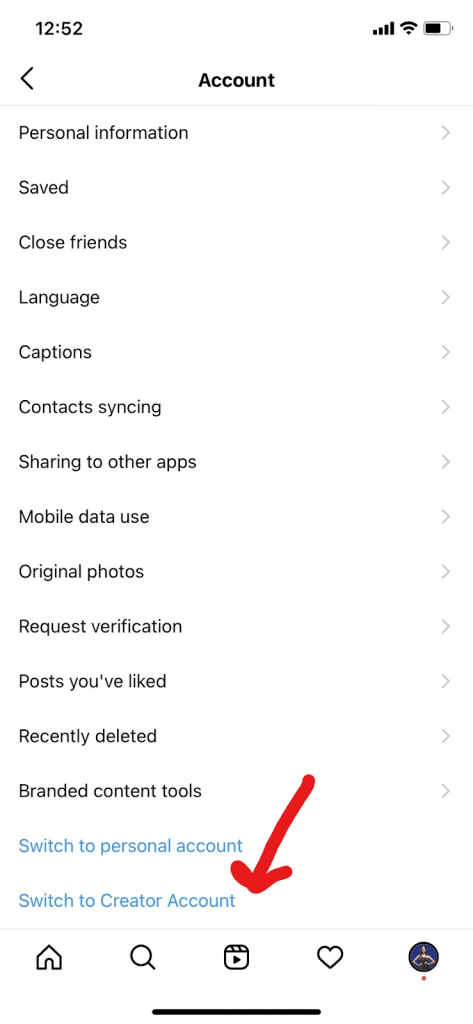
- You’ll see a list of categories from artist to video creator. Choose the appropriate one for you.
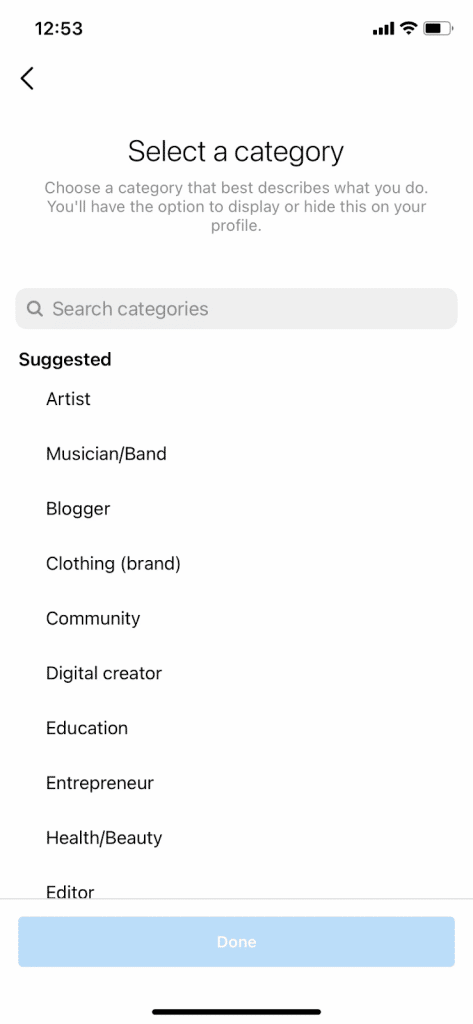
- Next, you’ll see a pop-up confirming the switch, and you’re done!
If you’re planning to create a new profile for blogging, you can follow the standard method of signing up on the platform.
And voila, you’re ready to begin your blogging journey on Instagram.
- Choose your niche wisely
Choosing a blogging niche is crucial because people will only follow you if they know what kind of value or content they can expect. If you’re an expert and create niche-specific content in one area, you’re likely to attract potential customers and build authority in that niche.
For example, here is a blog on parenting.

Suppose you begin blogging about random topics without deciding on a niche. In that case, you could end up confusing your audience. Imagine visiting a page that talks about food, lifestyle, and travel. Would you follow that page for travel or a travel blogger which solely talks about everything travel-related from destinations to hotels?
Now, to decide a niche for your Instagram blog, ask yourself these questions:
- What do you want to be known for?
- What type of people do you want to attract or build a community with?
- What will you be able to create content about consistently?
- What is something you’re keen on taking forward as a career?
These questions will help you narrow down a couple of things to choose from and take forward as your niche. It can be as broad as ‘fitness’ or as narrow as ‘fitness for moms.’ The more specific you are, the greater you will establish your authority and convert your audience.
While it’s important to consider your audience, take into account your interests and the earning potential of that niche as well.

Profitable Instagram niches in 2021
While you should choose a niche that interests you and can help you create a lucrative Instagram blog, look at these ten profitable niches for 2021:
- Fashion
- Beauty
- Travel
- Lifestyle
- Health and Fitness
- Business and Entrepreneurship
- Parenting
- Food
- Music
- Photography
You can always start with a broad niche and then, moving forward, transition into a narrower one.
- Work on the structure of your profile
Now that you have an account and have decided on a profitable niche for your blog, it’s time to spruce up your profile. Before you can get your audience to consume your content, they will look at your profile.
When a user clicks on the ‘follow’ button, they’re investing their time and attention in anticipation that they get quality content from you. But before they can get to the content, your profile’s overall look and feel should interest them.
Here are some important elements of your Instagram profile that you must pay attention to:
Username
If you already have a blog on other platforms, be it your website or a social media platform like Twitter, stick to it for consistency. However, if you’re deciding on a new one for your Instagram blog, then pay attention to it. It can be related to your name, but for SEO purposes and enhanced visibility, consider including your niche keyword.
For example,Neha is an Instagram coach, but her username says neha.social because she helps coaches with their social media problems.
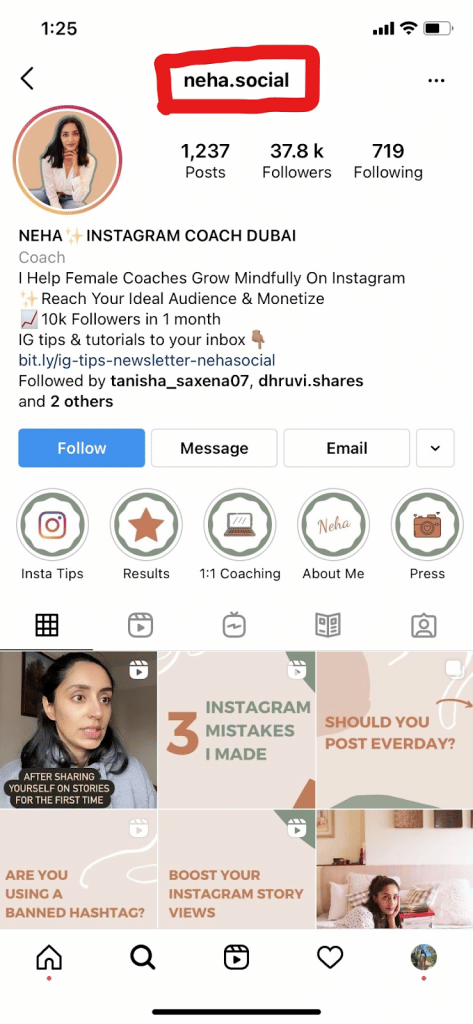
Having a niche-specific username is catchy and allows people to relate to what you do.
Profile picture
Your profile picture is the first thing users see when they visit your profile. It should reflect your brand colors or show you doing something related to your niche.
If you have a food blog, show yourself making food. If you have a travel blog, show an aesthetic travel picture. It sets the tone for your entire profile, so don’t overlook its importance.
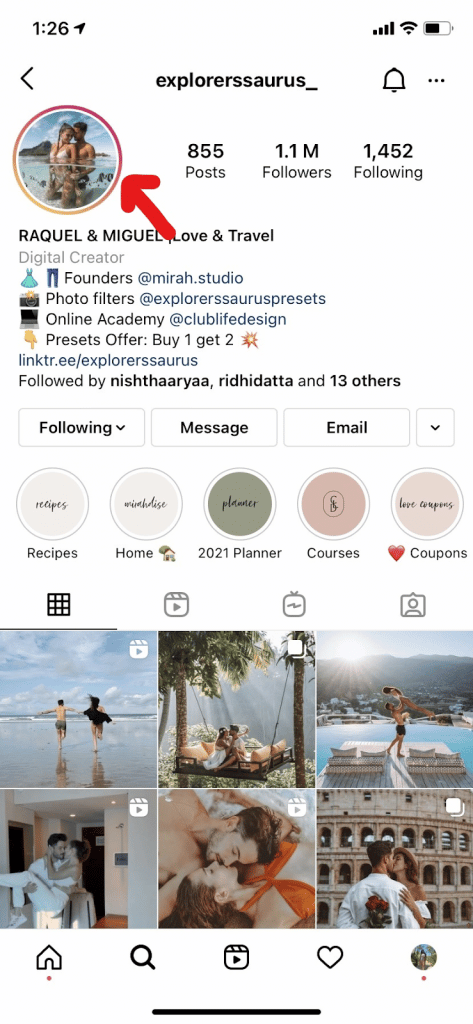
Bio
This is perhaps the most important aspect of your profile because it tells the audience about you. It’s your first chance to impress them and leave them wanting more to scroll and consume your content. There’s a limit of 150 characters, so you must be concise and straightforward with what you write.
Talk about who you are, what you do, and for whom you do it. You can also tell your audience about the kind of content they can expect from you. The last line of your bio should always be a Call-To-Action (CTA) with a link to book a call, your website, or a bridge landing page with multiple link options.
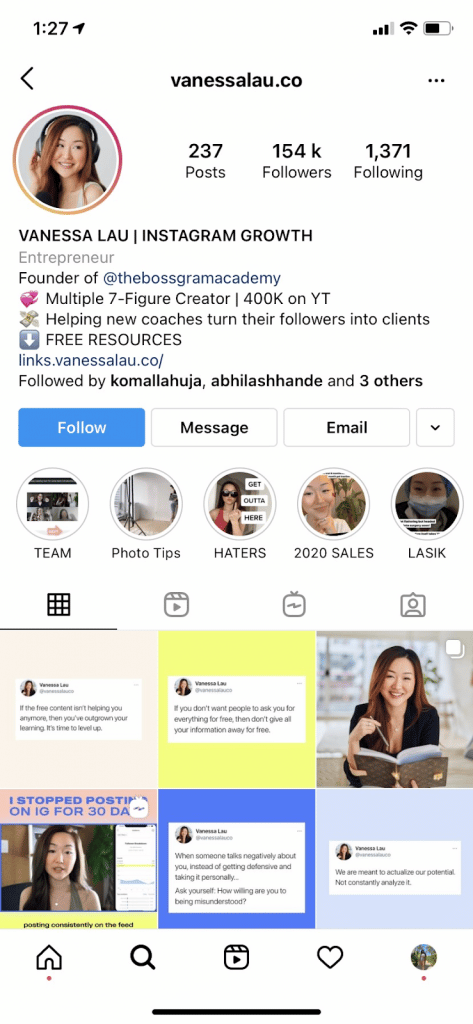
Remember, you want your audience to convert. Don’t hold back on creating an impressive profile that compels them to click on the ‘follow’ button and eventually convert into customers.
- Create an editorial calendar for your blog
Instagram is a platform that requires consistency. You’ll have to plan your content with research to create targeted content for your audience. This also includes preparing an editorial calendar to put things on auto-pilot and ensure you’re posting content regularly without fail.
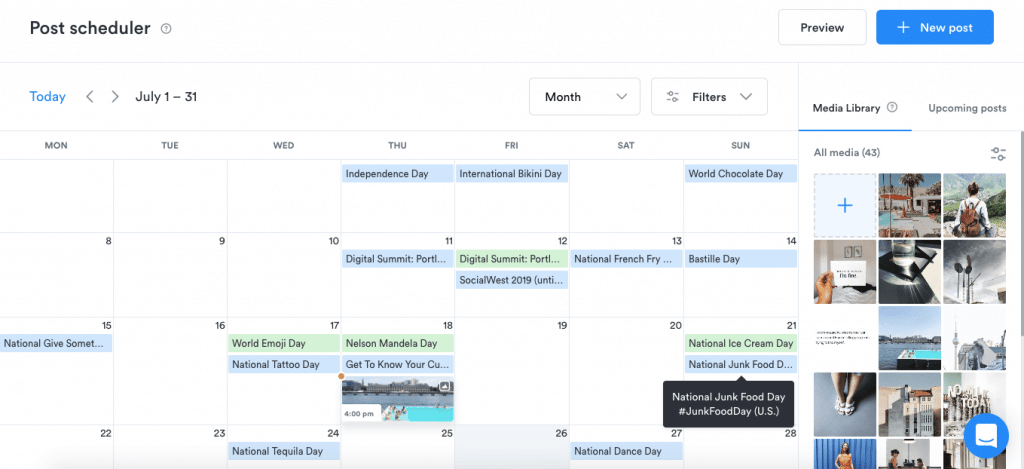
You can use content calendar tools to create a plan for your Instagram content. These tools help streamline the process and collaborate if you have a team.
When you’re creating your editorial calendar, include all Instagram features and distribute your content strategy evenly amongst them. These should include:
Feed posts
Feed posts are the regular 1:1 dimension posts. These can be static images, carousel posts upto 10 slides, and videos of upto 1-minute in single or carousel format.

Ideally, you should post over 2 feed posts every week in varying formats consistently.
Stories
These are snackable 15-second videos that stay on your profile only for 24 hours unless you add them to a specific highlight on your profile. It’s a great way to interact with your audience, ask them questions, or show some behind-the-scenes stuff.

Ideally, you should post over 4 Instagram stories every day to maximize reach and stay on top of your audience’s head at all times.
This recent feature on Instagram has resulted in a massive reach for influencers and bloggers. These are bite-sized videos of upto 30 seconds where you can add transitions, music, effects, and much more.

Ideally, you should post 3-4 reels a week to reach a wider audience than your followers.
IGTV
Just because short-form content is trending, it doesn’t mean that long-form content doesn’t work. IGTV allows you to create long videos of upto 10 minutes, to engage your audience into some in-depth content. A 15-second preview is posted on your profile, after which the user gets an option to watch the video further.

You can create vlogs and long-form niche-related content here to give your audience a wider insight.
Ideally, you should post 1 IGTV video per week.
Instagram live
It’s one thing to post content and engage with your audience, but it’s another to chat with them in real-time. Instagram Live is a perfect way to speak to your audience, get them on camera, answer their questions, or even collaborate with another blogger.

You can add up to 3 people in the live, thus allowing an exchange of audiences as well. It’s a great way to keep your community engaged and show up on camera to build trust.
Ideally, you should do at least one live session per week.
Guides
Guides are a recent feature launched by Instagram, but which provides massive value to the audience. You can club your posts, videos, and IGTVs on common topics together for your audience to look at it.

An Instagram editorial calendar should allow you to plan content buckets that can leverage all of these features consistently.
How to find content ideas?
- Search for relevant hashtags and observe the kind of posts others are creating
- Survey your audience and ask them the type of content they like to see
- Imagine yourself as the audience, and analyze what kind of content you would want to consume
- Type in niche-specific keywords on Quora, Reddit, and Answer the public to find more ideas
Pay careful and sufficient attention to content planning. No matter how good-looking your profile maybe, if you don’t research and plan content, it won’t make a difference. In your content calendar, you can also include a distribution and promotion strategy to leverage different methods of sharing to boost your content’s reach. This is perhaps, one of the most important aspects of getting started on Instagram.
- Draft an effective hashtag strategy
Before you start creating and posting content, you need to draft an effective hashtag strategy. There is a 30 hashtags limit on Instagram. You can include them either in your caption or in the comments if you want to keep your post clean.
They help you get discovered and boost visibility on Instagram to reach an audience wider than your followers. But it’s not that easy. There’s a lot of competition on Instagram, so you can’t just throw in any hashtags and expect to rank on them.

Here are some best practices to find the right hashtags for your profile:
- Create 3 sets of hashtags, each with 20-30 of them. These should be a mix of small hashtags (less than 50k posts), medium hashtags (50k-500k posts), and large hashtags (500k to 2M posts). Use them alternatively and see what works best for you.
- To choose your hashtags, hover over to your competitor’s profile and observe the hashtags they use.
- As a general rule of thumb, include hashtags relevant to your post’s context, location, niche, and content buckets.
- Use a few generic yet relevant trending hashtags in between the niche-specific ones and avoid banned hashtags
- You can also try using hashtag tools like Hashtagify to segment your hashtags.
- Experiment with your hashtags and use the post analytics to see how they’re performing.
Hashtags are an essential part of Instagram and can incredibly increase your reach and place you on the explore page. It can get more eyes to your content and a greater engagement and follower count- all organically.
Another way to expand your reach is using geotags specific to the location you’re targeting. It can help you target an audience particular to a location.

- Start creating your blog posts with quality content
Now that you have your foundations in place, you can kickstart the main element of blogging- content creation. Let’s not forget that Instagram is a competitive place, and many people are already creating content on similar topics; however, that shouldn’t stop you. To work your way around this, aim at creating quality content.
The more value you provide through your content, the more your audience will engage with it.
Here are some essential aspects of content creation that you should pay attention to:
Content- captions, image copies, and video scripts
Image copies will be used when you’re creating educational carousel posts. They should be direct, with a lot of white spaces. Addressing one point at a time should be the motive to ensure the audience can comprehend it entirely. These posts perform well if you can write short sentences and communicate your message in fewer words.
Here’s an example of image copy on a carousel post meant for Instagram.

Video scripts will be used when you create videos, be it for IGTV or reels. It needs to have a hook to keep the audience engaged. Again, you want your video to fit into the duration limit, so keep it crisp and brief. If you’re creating an IGTV. or a long video, you can include some music to keep them from getting bored. Try to include an exciting statistic to make it more attractive.

Captions are one of the essential aspects of Instagram. It should complement the image or video and add more context to it. Highlight your storytelling skills here to allow your audience to connect with your captions more. Make it enjoyable with a few emoticons or bullet points if you have a longer caption.
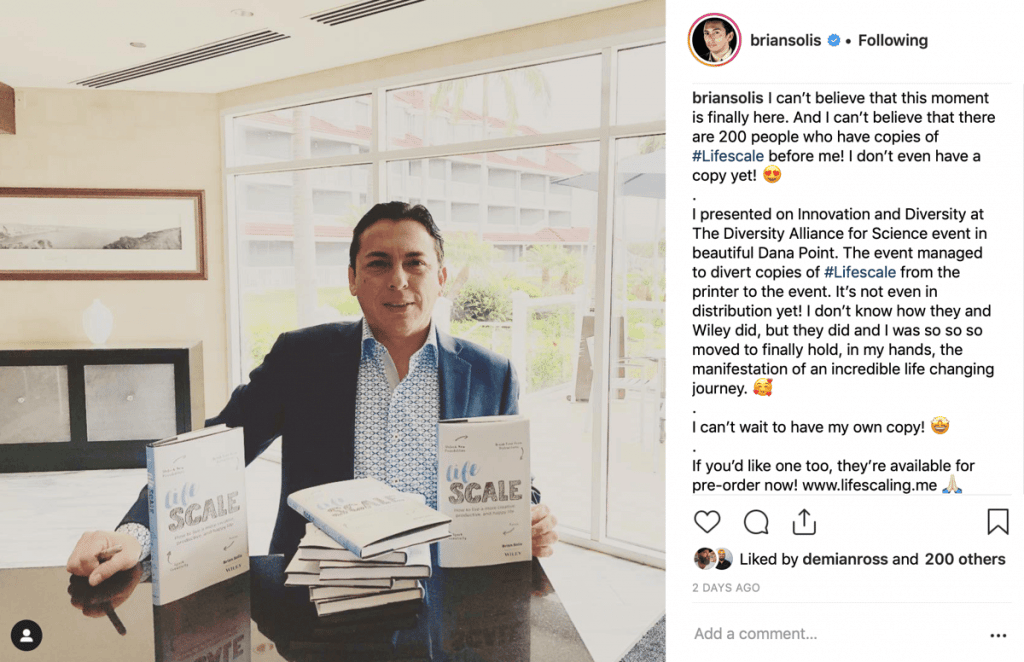
As a general rule of thumb, include a CTA in your caption. This can be a question that motivates the audience to leave a comment or a direction to view the link in your bio. It should be compelling enough to make them want to take action.
Graphics and Images
Instagram is a visual-heavy platform, and so your graphics and images cannot be average. They’re an essential part of content creation because if you can’t hook your audience with your visuals or photos, then you’ve failed to bag their attention.
If you’re creating carousel posts or thumbnails for your videos, you would want to create graphics. You can either hire a graphic designer for this or do it yourself with easy-to-use design tools like Canva or Visme. Here, you’ll get easy templates as per the different format sizes where you can fill in your content, add a few elements, and brand it as per your colors and fonts.

If you have a fashion, travel, or food blog, there would be more images than graphics. For this, ensure you’re clicking high-quality pictures and shooting high-resolution videos. If your content isn’t visually appealing, your audience won’t enjoy it, no matter how good the content is written.

Graphics, images, and written content are important for Instagram. You can do this yourself or hire freelancers to do it so you can focus on things of greater importance.
Once your graphics and content are sorted, you can start implementing your content calendar and set your strategy into motion.
- Set an analytics system in place
If you don’t analyze your Instagram efforts, you won’t improve and amplify your results. The famous bloggers you follow on Instagram have reached that position after implementing and analyzing a working Instagram marketing strategy day after day.
Measuring these analytics is essential to check whether your efforts yield the results you expected and how you can improve them even further. This way, you can work on your strategy and achieve more significant results regarding followers and conversions.
Remember, the more you work on your Instagram strategy, the more eyes you can attract to your profile. This can unlock a variety of money-making opportunities. So don’t hold back on analysis.
Instagram has an in-built insights dashboard which you can use to study the following:
- Number of accounts reached in the past 7 or 30 days
- Number of profile visits, website clicks, and impressions
- Top-performing stories, posts, and IGTV videos
- Number of interaction on posts and stories in the past 7 or 30 days
- Best posting time for your profile

You can use these insights or third-party Instagram analytics tools to understand how your content is performing and how your audience interacts with it. As a blogger, you would also want to analyze the number of leads or conversions you’ve received.
Using this, you can tweak your strategy and make it even better to make your way towards monetizing your audience.
- Explore ways to monetize your blog further
Once you start building your following, you’ll come across several ways to earn money and monetize your following. Let’s look at some of these:
Sponsored posts through influencer marketing
Influencer marketing is on the rise, and it’s one of the most common ways bloggers and content creators are making money on Instagram. When you build an audience for a particular niche, you get approached by brands in that industry to endorse their products and services. This happens because these brands want to reach their potential customers through you.
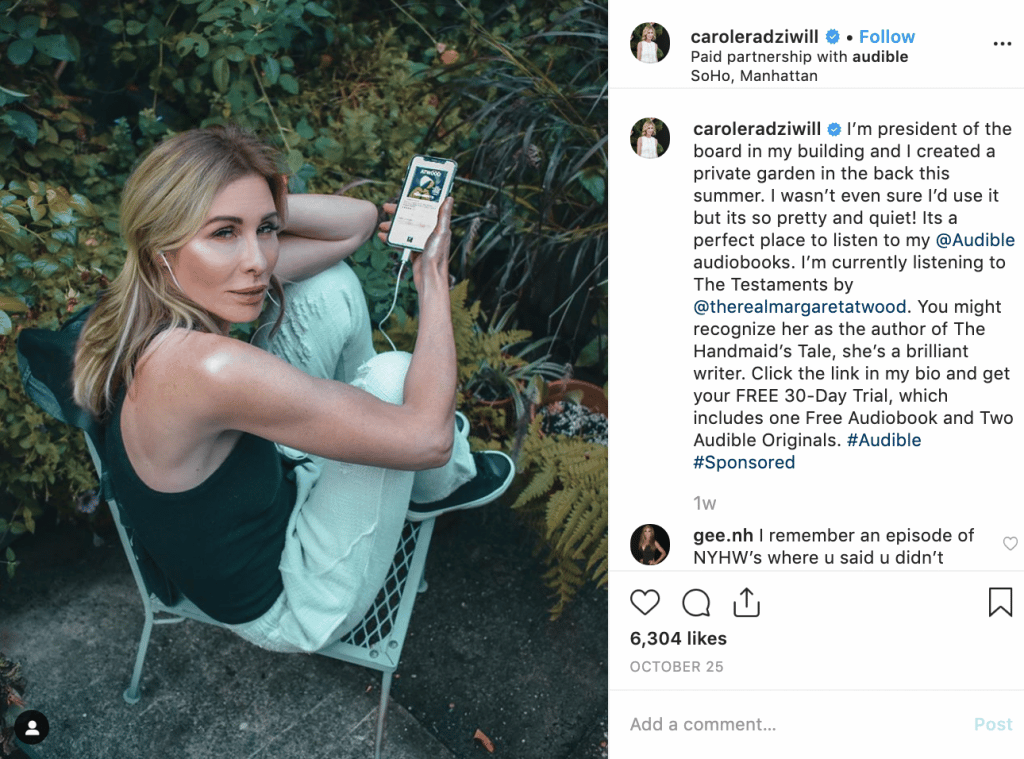
Being an influencer means holding an authoritative power. You can influence people, shape their thoughts and endorse the products you use.
However, with great power comes great responsibility. As an influencer, it may get tempting to sign every brand deal that comes your way, but you need to be selective. So, reach out to brands on Influencer marketing sites, and build your blog and sign only certain kinds of brand deals that you want to do,
By agreeing to a brand deal, you put out stories and posts endorsing the brand or product. You get paid to post because they leverage your followers and use it to drive conversions or grow their following.
Sell your products
As a blogger, you can sell your products without having millions of followers. These can be digital products like eBooks, masterclasses, exclusive communities, and courses. They can even be physical products relevant to your niche like stationary, baked goods, etc.
Selling your products on Instagram requires a strategic approach. You need to build trust through your free content to enable people to buy from you. The link in bio, swipe up feature for over 10k follower accounts, CTAs in captions, and your stories are for selling. Through your free content, you can warm up your potential customers and persuade them to buy from you.
Affiliate programs
Not every brand deal pays you money to post on your profile. Some of them can be on a commission basis also. Say you promote a digital product by a brand on your profile. You can get a commission on every sale the brand makes through your custom affiliate link. These partnership programs are a great way to keep earning money by endorsing the products you’re confident your audience will be interested in buying.

If you want to monetize your blog in multiple ways, you can use a URL lister like Linktree in your bio to allow your audience to choose wherever they want to navigate.

Conclusion
Starting a blog on Instagram may seem easy on the outside, but its maintenance requires a lot of effort. Everyone can create an account, but running it successfully and using it to make money is a whole different ball game.
However, you can use this guide as your roadmap to set up a profitable Instagram blog that can help you make big bucks. It’s all a matter of being loyal to your followers, providing genuine value, and being consistent. The work lies not in content creation but in being regular with that content creation.
So, use this strategy and pave your way to endless monetizing opportunities and a lucrative Instagram blog.
Happy blogging!
Author Bio

Eduard Klein is an International Digital Growth Marketer, Blogger, and Entrepreneur with a global mindset. He guides people through the process of starting and growing a digital business, and to ride the wave of digital technology and marketing without getting swept away.
Headshot:


